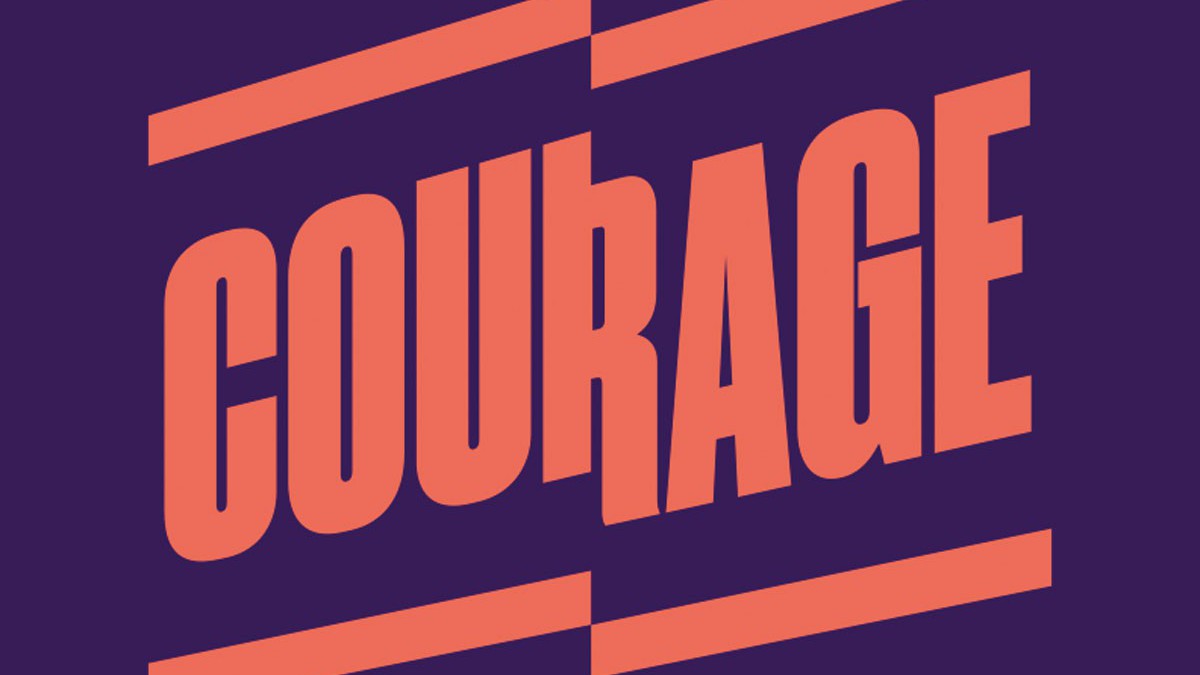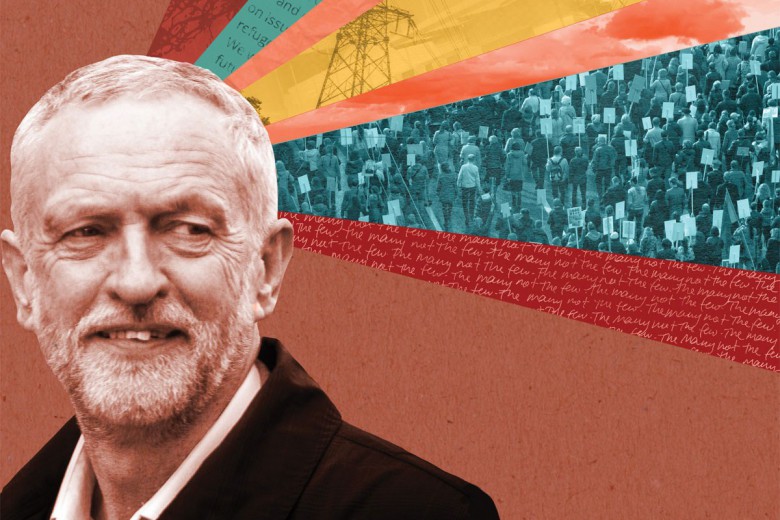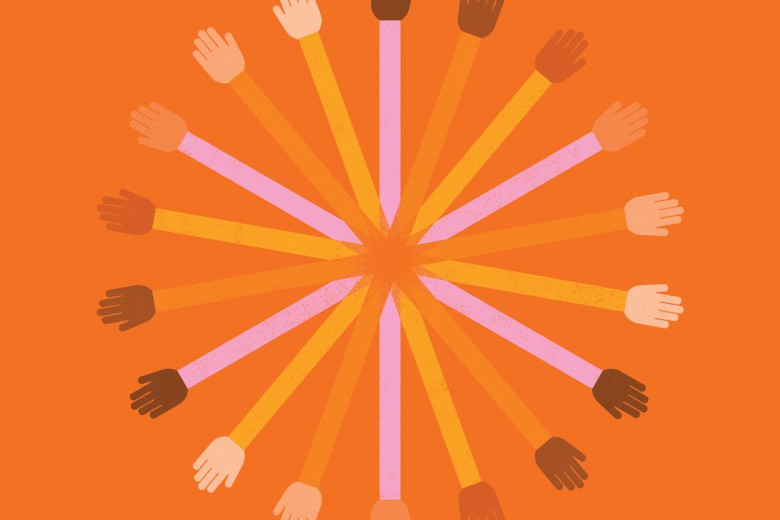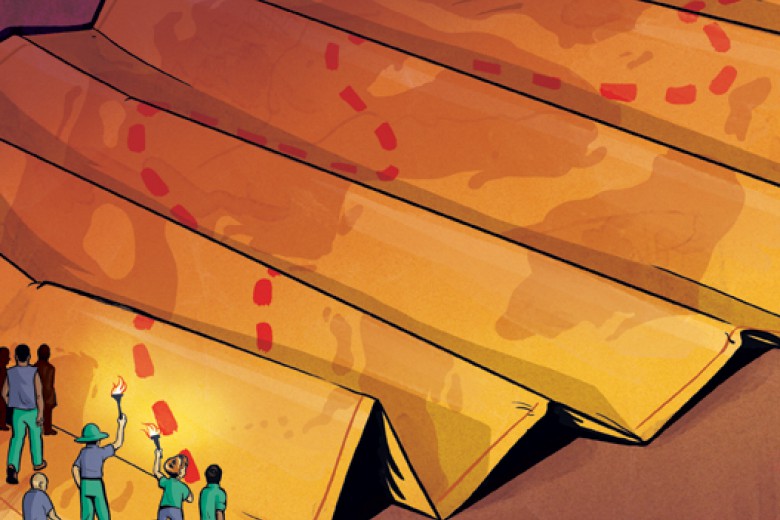This spring, a coalition of 30 activists from across Canada launched Courage: A coalition of the independent left. The goal was to create a national, member-based organization that would provide a democratic organizing platform for people on the socialist, feminist, anti-colonial left. The first step taken by the organization after launching was to invite people to take an online survey to get feedback on political priorities and strategies. The results of that survey affirmed the organization’s twofold approach: engaging with electoral politics from the left while also building social movement power beyond the ballot box for the long term.
Some of the founders of Courage are young people on the left margin of the NDP, while others have no relation to the NDP at all. What all members of the new initiative share is a long-term goal of addressing climate change and inequality in Canada as systemic issues caused by capitalism. One thing likely not on deck for Courage this summer will be fanning the flames of patriotism and national pride amid the 150th anniversary celebrations of Confederation.
Your website has a Basis of Unity and a handy Frequently Asked Questions (FAQ) page that I would encourage readers to check out – but, in a nutshell, can you both outline what you see as the purpose of Courage and why each of you, personally, are involved in building this member organization?
Dru Oja Jay: A lot of my political work has been in local groups focused on an issue, like democracy in Haiti or the right to land and leadership selection for the Algonquins of Barriere Lake. There’s a big gap between those groups and, say, political parties or NGOs, which have a larger reach but are severely limited in their ability to speak to the heart of the environmental and economic crises we face.
At the same time, I’ve been watching other countries, how figures like Jeremy Corbyn and Bernie Sanders raise these huge armies of activists and newly politicized folks, and it’s party hacks that get de facto control of the leadership of those movements. It’s a demoralizing process – huge hope, followed by a big sigh. Canada will have a left populist moment of some kind (the alternative is unthinkable), and I think part of the experiment of Courage is to see if we can channel that energy into something that is self-managed and democratic, and not just a wing of whatever party can catalyze that discontent.
Navjot Kaur: I see Courage as an effective means to communicate with a network of people on the ground – to open dialogue between organizers about policy and advocacy on the left. For me, there is a glimmer. I see an opportunity for change through this network building. There is an opportunity here for diverse and integrated dialogue that will ideally expose institutional gaps. The democratic nature of this coalition and the incredible accessibility through social media is an example of the times.
Canada will have a left populist moment of some kind (the alternative is unthinkable).
There have been several attempts to democratize the NDP and push it to the left over the years – from the Waffle faction in the 1960s and 1970s to the New Politics Initiative (NPI) 15 years ago. Most would view these efforts as failures. What makes you more hopeful about Courage’s prospects for shaking up the NDP?
Kaur: Who is mobilizing today and how we communicate are very different from the Waffle and the NPI. The context, politics, and economic precarity are not the same. There has been a slow erosion of labour bargaining and there is a generation of contracts that can validate that! The NDP, and other kinds of institutions for mobilizing and organizing people, should be used to represent the present-day issues and demographics. I do think there are a lot of people who have learned from those experiences and enrich our co-constructed knowledges as an organized collective.
Your long-term goal is “social and economic transformation that prevents catastrophic climate change and asserts democratic control over the economy.” I suspect this sounds vital and refreshing to a lot of people! But some might see a contradiction between your long-term goal and your short-term goal of intervening in the NDP, which is a centralized, top-down organization whose chief aim is to govern a capitalist, colonial nation-state. Can you comment on the relationship between your short-term and long-term goals?
Oja Jay: This gets us to the question of what is the NDP, which is a good question. A few years ago, the U.K. Labour Party was indisputably a force of imperialism and war. Now, let’s not say it’s the opposite but there has been a fundamental change in direction. I think that when people talk about the NDP, they’re talking about the current staffers in the national office, the leader, and a network around those folks.
Now, it’s true that the membership has been complicit in electoral opportunism that has been unprincipled to say the least. But no one has made a sustained case for an alternative – a decolonial, anti-capitalist vision for this part of Turtle Island. The Leap Manifesto started to, and NDP members voted in favour of it the one time they had a chance. What could we do if thousands of new young people got involved the way they have in the U.S. or U.K.?
Kaur: Our goals centre the immediacy of climate change and the need to begin the transition to balanced economic and environmental sustainability. Our current campaign engaging with the NDP functions as an educational vehicle, which can connect policies to our lived experiences. So I don’t really see there being a deep-rooted contradiction between a more fundamental transformation and how we’ve collectively chosen a short-term goal that engages with the NDP leadership race and party in general.
Our goals centre the immediacy of climate change and the need to begin the transition to balanced economic and environmental sustainability.
Courage has been founded by young people. But it is different than a lot of radical youth initiatives in that it seeks to be a dues-paying, membership-based organization – though not a political party – with a strong focus on electoral politics. Do you see Courage as unique, or are there models elsewhere for what Courage is striving to be?
Kaur: I have been fortunate to have had diverse relationships and have been involved in various advocacy and education groups. So my opinion reflects my relationship to one kind of work related to social movements and learning. There are similar kinds of groups, technically speaking, relating back to mass media these days, but they do not have our specific goals, organizing patterns and membership.
We are democratic in that we are the people who make it up. Our members contribute their experiences, knowledges, and analyses from their community circles. In my case, as a Sikh woman – anti-racism education and more recently genocide education has been a part of my activism. In my opinion our coalition is a reflection of the times and is a kind of snapshot of how communities relate to each other in complex ways. For me the striking line in our Basis of Unity is: “Our organization is a space for learning, teaching and collaboration” – that is the core of how Courage engages.
Oja Jay: The reason for Courage to exist from my perspective is to get in front of the populist moment that is coming, and keep it from getting absorbed and stifled by, say, the NDP. So we have to learn from the U.K.’s Momentum, and Bernie, and the South American left, and so forth.
In that context, I see Courage as a part of a string of experiments in building non-sectarian multi-issue organizations on the left. Some of them have been less successful, like the Greater Toronto Workers’ Assembly, but even the “failures” provide important lessons. Alan Sears wrote a great article that highlighted some of the mistakes, things we’ve worked hard to learn from. “The Solidarities” – local organizations in Halifax, Ottawa, and Winnipeg, which are very hopeful and vital projects – are also inspirations. In my opinion, we need to try lots of variations on this to figure out what works. There is no proven party-building formula, and we’ll have to keep working at it to develop something that effectively integrates the complexity of the Internet, peer-to-peer production, anti-oppression, globalization, and the fragmentation of work and community, among other things.
Your Basis of Unity recognizes that Canada has been founded through land theft, occupation, genocide, and colonization, and that Canada persists as a colonial state to this day. How do you see Courage taking up the issue of colonialism differently than other left-wing formations of the past and present in Canada?
Oja Jay: In one sense, there has been resistance for 400 years, but in another sense, I think that we’re in the early stages of figuring out what decolonization looks like. There’s a huge amount of damage control that is so important to do – working for justice for missing and murdered Indigenous women, or scaling up funding for schools on reserves; really basic stuff that should not be an issue in a G8 country.
But precisely because there are so many fires to put out, we need to go after the arsonists. And the core of that, I think, is who controls the land – how it’s used, who decides, control of revenues that come from that. So the one thing that I would say across the board is that as left organizations, we need to understand the underlying politics of territorial sovereignty, and lend material and political support to communities that are the front lines of those land struggles. The real task is turning the fundamental transformation that that entails into a political strategy with a coalition behind it that’s big enough to make the required changes.
Kaur: The legacy of colonialism continues to dispossess. Naming colonial infrastructures will be a key component of the movement building and ongoing education that Courage will do. For example, our legal, historical, economic, and ideological histories link the implications of colonial laws and schooling and intergenerational traumas. Undeniably and unequivocally centring First Nations’ philosophies and ways of knowing is urgent. Taking the lead from First Nations is mandated to us as peoples living on this land in so many complex ways.







